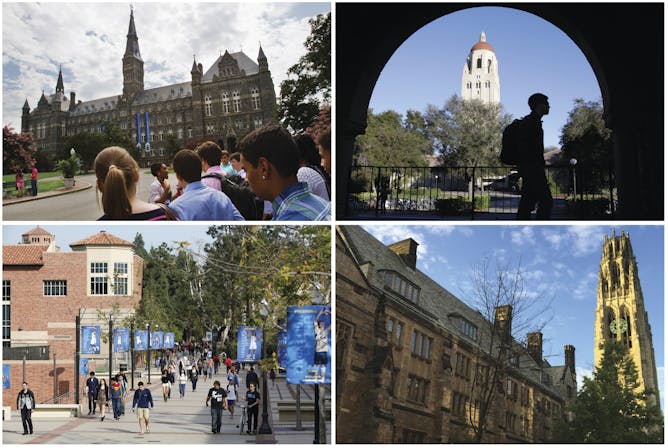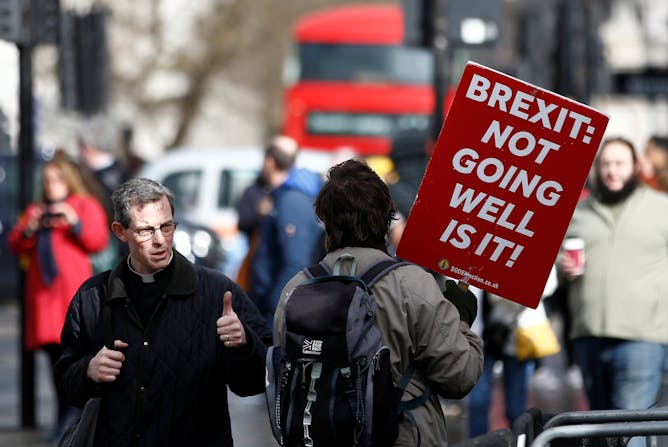Editor's note
|
|
The Connecticut Supreme Court ruled yesterday that the families of the Sandy Hook Elementary shooting victims can sue the companies that made and sold the semiautomatic rifle used in the attack. If the decision stands – which is no sure thing – it would likely open the floodgates to more lawsuits against gun makers throughout the country, argues Timothy D. Lytton, a law professor at Georgia State University.
The recent college admission cheating scandal has drawn outrage toward parents who broke the law to get their kids into competitive schools. But, argue Morgan Polikoff, Jerome A. Lucido and Julie Renee Posselt, education scholars at the University of Southern California, the real scandal is the many ways wealthy families work within the system to protect their competitive advantage in the college admissions process.
This week in Britain, Parliament took a trio of votes on Brexit – none of which moved the country any closer to achieving an exit from the European Union. Three American EU watchers – Garret Martin of American University’s School of International Service, and Scott L. Greer and Holly Jarman of the University of Michigan – react to a messy week in U.K. politics.
|
Bryan Keogh
Economics + Business Editor
|

|
|
Top stories
|

A detective holds a Bushmaster AR-15 rifle, the same type of gun used in the Sandy Hook School shooting.
AP Photo/Jessica Hill
Timothy D. Lytton, Georgia State University
The Connecticut Supreme Court ruled that the families of the Sandy Hook shooting victims could sue a gun maker, a decision that could open the floodgates to more lawsuits.
|

Clockwise from top left, Georgetown University, Stanford University, Yale University, and University of California, Los Angeles.
AP
Morgan Polikoff, University of Southern California; Jerome A Lucido, University of Southern California; Julie Renee Posselt, University of Southern California
Even if wealthy parents don't resort to the kind of illegal tactics in the recent college cheating scandal revealed by the FBI, the college admission process still favors the rich, scholars argue.
|

Outside the Houses of Parliament in London on March 14, 2019.
REUTERS/Henry Nicholls
Scott L. Greer, University of Michigan; Garret Martin, American University School of International Service; Holly Jarman, University of Michigan
Three scholars react to the spectacle, finger-pointing and long-term harms of the stalemate in British Parliament.
|
|
|
|
|
|
|
|
|
|
|
|
|
|
|
|
|
From our International Editions
|
-
Oihab Allal-Chérif, Neoma Business School
The 737 Max is the best-selling airliner ever. But two have crashed in five months, killing 346, damaging Boeing's future and raising questions about the increasing sophistication of cockpit technology.
-
Chrystal Zhang, Swinburne University of Technology
The fallout from Boeing grounding some of its aircraft amid safety concerns will hit both passengers and airlines. Be prepared for delays and higher fares.
-
Nacima Ourahmoune, Kedge Business School
Young Algerians who dream of accessing global markets have extensively used iconic brands, films and series as political resources.
|
|
|
|
| |
| |
|
|